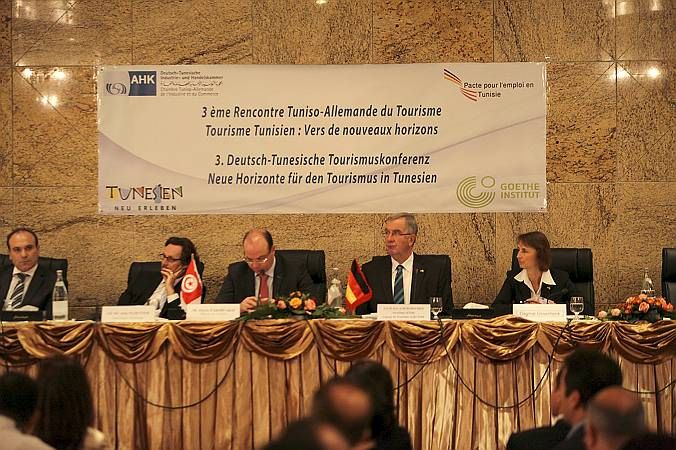Initial situation / Problem
The transformation of Tunisia initiated by the 2010/2011 Revolution is opening up great opportunities for the country and the entire region. But the challenge of continuing the process of democratisation that has begun is just as great. The population, which has gained new freedoms, expects an improvement in its economic situation. In 2012, approximately 1 million Tunisians were unemployed. The unemployment rate among young people was about 25%. Every year 80,000 new job seekers came onto the market, 60% of them university graduates. Even after the revolution, the unemployment figures and thus the pressure on the labour market continued to rise. At the same time, many companies complain that they cannot find suitably qualified skilled workers.

Project goals
The "Tunisia Employment Pact" programme aimed to contribute to Tunisia's economic stabilisation and successful democratisation by promoting employment and improving the quality of vocational training.
The programme is based on three pillars:
- Strengthening the dialogue and partnership between the vocational training centres, Tunisian companies and organisations of the constitutional economy in order to bring the educational offer closer to the needs of the private sector.
- Capacity and skills building of vocational training centres (managers and trainers) and in-company trainers
- Modernisation of the equipment of the selected vocational training centres
Effects
Within the framework of the "Tunisia Employment Pact", vocational training provision and the qualifications of trainers should be geared more closely to the needs of the economy.
These results were achieved in concrete terms:
- 40 workshops and classrooms were converted and modernised in the nine vocational training centres.
- The Tunisian partner ATFP contributed EUR 800,000 to the construction work itself.
- New equipment for nine vocational training centres was procured to the tune of approximately EUR 4 million.
- Approximately 250 trainers from vocational training centres and companies were trained (technical and didactic training).
- Over 100 craftsmen and women were trained in photovoltaics.
- 9 framework curricula were developed or worked on.
- There were joint activities for managers of the nine vocational training centres.
- Maintenance software was introduced.
- Two German partners (UWZ Saarl-Lor-Lux and bbw gGmbH) continued their cooperation with Tunisian partners in BMZ-financed projects.
- Experience from the Employment Pact has influenced the Tunisian Ministry's strategy and follow-up projects in Tunisia. The role of the private sector in vocational training has been strengthened.

